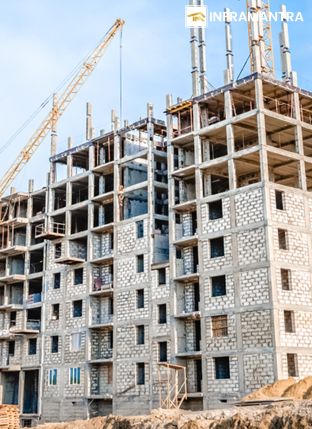You would not want your dream to own a house of your own turn into a nightmare. This is why it is very important that you do all the due diligence before booking a home, especially one that’s under-construction. Buying an under-construction residential property can be rewarding in many ways. You not only get better pricing, but also the opportunity to enjoy higher property-appreciation. However, under-construction properties also come with some risks, such as legal troubles, delay in possession, and bad quality construction. And these are just a few to name.
If you don’t want to face any of these issues in the future, follow this quick checklist. Yes! We have created a checklist that will help you navigate seamlessly throughout the home-buying journey, ensuring that your investment is safe and your home is future-ready.
Documents you must check before buying an under-construction property in India:
#1 Ensure the Project is Registered with RERA
Verify RERA number of the project. RERA or the Real Estate Regulatory Authority offers a unique registration number of the project, registered under RERA ensuring transparency in project details, delivery timelines, and pricing. This helps protect your rights as a buyer. You can easily check the project’s RERA status on your state’s official RERA website. If the project isn’t registered, consider it a red flag.
#2 Go Through the Builder-Buyer Agreement Carefully
The Builder-Buyer Agreement is a legally binding document that defines your relationship with the developer. It should clearly state:
- Project specifications
- Possession date
- Payment schedule
- Penalties for delays
Note: Always read the document thoroughly and consider having it reviewed by a legal professional to avoid surprises later.
#3 Check the Developer’s Reputation
The credibility of the builder or developer plays a crucial role in your home-buying decision. Do a background check:
- Visit their completed projects
- Look at their delivery timelines
- Read customer reviews online
Note: A well-known builder with a good track record is more likely to deliver quality construction on time.
#4 Verify All Legal Approvals and Clearances
Before booking the property, ensure that the developer has obtained all necessary legal permissions, such as:
-
Land ownership documents
-
Building plan approvals
-
Environmental clearances
-
Municipal sanctions
Note: These documents confirm that the project is legally compliant and can be safely invested in
#5 Assess the Construction Quality and Progress
If possible, visit the site to check the quality of materials and progress of work. You can even bring along a civil engineer or expert to inspect the structural quality. Keep an eye on whether the construction pace matches the promised timeline and whether the amenities are being built as marketed.
#6 Understand the Payment Schedule
Under-construction properties come with various payment plans:
- Construction-linked plans
- Time-linked plans
- Down payment offers
Note: You should go for a plan that matches with your financial standing. Construction-linked plans are usually safer because payments are made as construction progresses, not upfront.
#7 Confirm Project Approval by Reputed Banks
If reputed banks or housing finance companies have approved the project for home loans, it means that the project has undergone financial and legal due diligence. Offering added peace of mind, this will also help make the home loan approval process easier.
#8 Calculate the Total Cost and Look Out for Hidden Charges
The base price of the property is just the beginning. Make sure you consider all additional charges, including:
-
GST
-
Registration fees
-
Parking costs
-
Maintenance deposits
-
Clubhouse or facility fees
Note: Don’t forget to ask the developer or property expert for a detailed cost-breakdown of the property to keep last-minute financial shocks at bay.
#9 Check Upcoming Infrastructure in the Area
Evaluate the future development plans of the neighborhood. New roads, metro stations, schools, hospitals, and shopping centers can greatly boost the value of your property. Also, check whether the builder has promised these developments or if they’re confirmed by local authorities.
Final Thoughts
Purchasing an under-construction property can be a great move, if you do your homework. From verifying legal approvals to understanding the fine print in agreements, each step ensures that your hard-earned money is invested wisely.
Taking the time to research the builder, understand the payment plans, and anticipate future infrastructure developments will not only protect your investment but also help you secure a home that grows in value over time. By following these 9 essential checks, you can confidently step into your home-buying journey and avoid the common pitfalls that many buyers face.
Need help finding the best residential property for you and your family? Visit Inframantra- Your one stop destination of premium residential properties. Developed by top real-estate developers, these properties have been hand-picked for its excellent location, top-tier amenities, spacious layout, and brilliant connectivity. Also, you can avail premium home-buying services without having to pay any brokerage fees, while finding the home of your dreams at an unbeatable price.
✍️ Written By: INFRAMANTRA
.webp)

